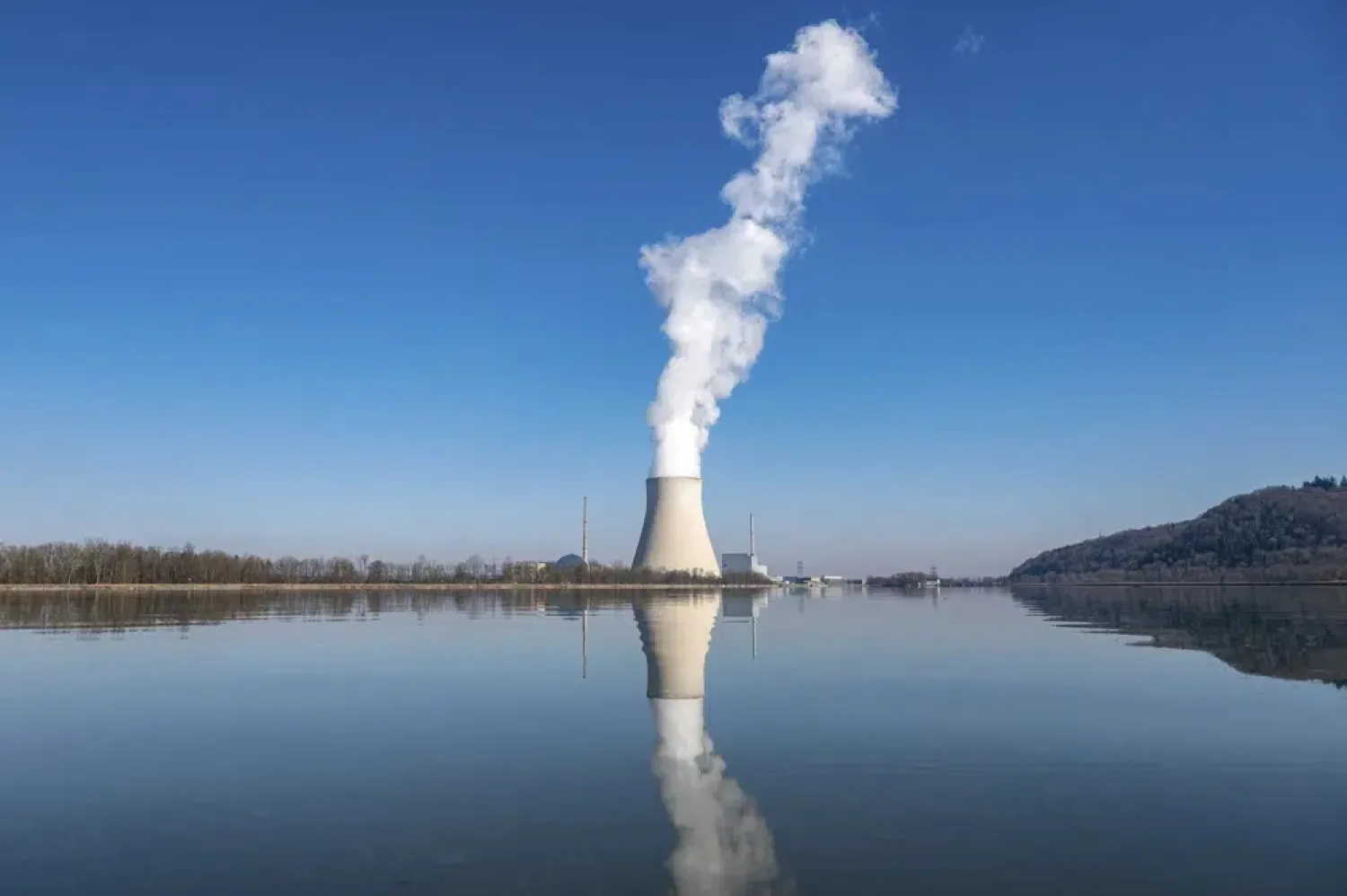“Nuclear power, no thanks!”
What was once a slogan found on the bumper of many a German car became a reality Saturday, as the country shut down its three remaining nuclear power plants in line with a long-planned transition toward renewable energy.
The shutdown of Emsland, Neckarwestheim II and Isar II shortly before midnight was cheered earlier in the day by anti-nuclear campaigners outside the three reactors and at rallies in Berlin and Munich. Inside the plants, staff held more somber ceremonies to mark the occasion.
Decades of anti-nuclear protests in Germany, stoked by disasters at Three Mile Island, Chernobyl and Fukushima, had put pressure on successive governments to end the use of a technology that critics argue is unsafe and unsustainable.
But with other industrialized countries, such as the United States, Japan, China, France and Britain, counting on nuclear energy to replace planet-warming fossil fuels, Germany’s decision to stop using both has drawn skepticism at home and abroad, as well as unsuccessful last-minute calls to halt the decision.
Defenders of atomic energy say fossil fuels should be phased out first as part of global efforts to curb climate change, arguing that nuclear power produces far fewer greenhouse gas emissions and is safe, if properly managed.
As energy prices spiked last year due to the war in Ukraine, some members of German Chancellor Olaf Scholz’s government got cold feet about closing the nuclear plants as planned on Dec. 31, 2022. In a compromise, Scholz agreed to a one-time extension of the deadline, but insisted that the final countdown would happen on April 15.
Still, Bavaria’s conservative governor, Markus Soeder, who backed the original deadline set in 2011 when Chancellor Angela Merkel was Germany’s leader, this week called the shutdown “an absolute mistaken decision.”
“While many countries in the world are even expanding nuclear power, Germany is doing the opposite,” Soeder said. “We need every possible form of energy. Otherwise, we risk higher electricity prices and businesses moving away.”
Advocates of nuclear power worldwide have slammed the German shutdown, aware that the move by Europe’s biggest economy could deal a blow to a technology they tout as a clean and reliable alternative to fossil fuels. On Friday, dozens of scientists including James Hansen, a former NASA climate expert credited with drawing public attention to global warming in 1988, sent a letter to Scholz urging him to keep the nuclear plants running.
The German government has acknowledged that, in the short term, the country will have to rely more heavily on polluting coal and natural gas to meet its energy needs, even as it takes steps to massively ramp up electricity production from solar and wind. Germany aims to be carbon neutral by 2045.
But officials such as Environment Minister Steffi Lemke say the idea of a nuclear renaissance is a myth, citing data showing that atomic energy’s share of global electricity production is shrinking.
At a recent news conference in Berlin, Lemke noted that new nuclear plants in Europe, such as Hinkley Point C in Britain, have faced significant delays and cost overruns. Funds used to maintain ageing reactors or build new ones would be better spent on installing cheap renewables, she said.
Energy experts such as Claudia Kemfert of the German Institute for Economic Research in Berlin say the 5% share of Germany’s electricity currently coming from nuclear can be easily replaced without risking blackouts.
The northwestern town of Lingen, home to the Emsland plant, plans to become a hub for hydrogen production using electricity generated from North Sea wind farms, Mayor Dieter Krone told The Associated Press in an interview this week.
The power plant’s operator, RWE, made clear that it is committed to the shutdown. The company still runs some of Europe’s dirtiest coal-fired power plants. It recently pushed through the destruction of a village for a mine expansion as part of a plan to increase short-term production before ending coal use by 2030.
Many of Germany’s nuclear power plants will still be undergoing costly dismantling by then. The question of what to do with highly radioactive material accumulated in the 62 years since the country’s first reactor started operating remains unsolved. Efforts to find a final home for hundreds of containers of toxic waste have faced fierce resistance from local groups and officials, including Soeder, the Bavarian governor.
“Nuclear power supplied electricity for three generations, but its legacy remains dangerous for 30,000 generations,” said Lemke, who also pointed to previously unconsidered risks such as the targeting of civilian atomic facilities during conflicts.
Finding a place to safely store spent nuclear fuel is a problem that other nations using the technology face, including the United States. Still, US Energy Secretary Jennifer Granholm has said that nuclear power will “play a critical role in America’s clean energy future.” This week, she welcomed Japan’s decision to restart many of its reactors.
With debate raging again in Germany about whether the shutdown is a good idea, the top official in charge of nuclear safety at the Environment Ministry, Gerrit Niehaus, was asked by a reporter to sum up in a single sentence what lessons should be learned from the country’s brief atomic era.
“You need to think things through to the end,” Niehaus said.









